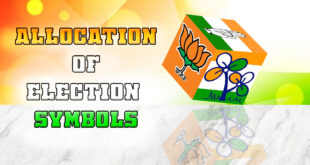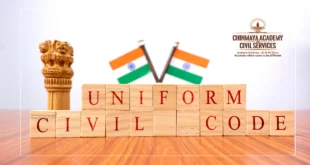The Supreme Court verdict on the Delhi government’s tussle with the Centre over the national capital’s bureaucracy draw new red lines for Constitutional offices in the face of political compulsions, and underline the sanctity of the elected government.
Verdict on basic structure:
- In the Delhi ruling, the apex court speaks to the Centre in emphasising that principles of democracy and federalism are basic structure of the Constitution.
- The court emphasised on a “triple chain of accountability” to read the Constitutional provisions expansively and allow Delhi government control over services.
- The bench said that the triple chain of accountability flows from bureaucrats to ministers, ministers to the legislature, and the legislature to the electorate.\
Verdict on control over services
The Supreme Court ruled that the Delhi government has legislative and executive powers over administrative services in the national capital.
The issue
- In 2015, a Union Home Ministry notification said that the Lieutenant Governor of Delhi shall exercise control over “services”.
- The Delhi government challenged this before the Delhi High Court, which in 2017 upheld the notification.
- On appeal, a two-judge Bench of the Supreme Court referred the issue to a larger constitution Bench.
- In 2018, a five-judge Constitution Bench, in a unanimous verdict laid down the law that governs the relationship between Delhi and the Centre.
- The ruling was in favour of the Delhi government.
The bone of contention
- The court had to decide if it was the Delhi government or the Union government that had legislative and executive control over the capital’s bureaucracy.
- The court had to interpret clause (3)(a) of Article 239AA (Special provisions with respect to Delhi) of the Constitution.
- It reads that the legislative assembly shall have power to make laws for the whole or any part of the National Capital Territory with respect to any of the matters enumerated in the State list or in the Concurrent list.
What is the extent of Delhi’s powers now?
- Article 239AA specifically excludes land, police and public order from the purview of the legislative powers of the Delhi government.
- The court acknowledged that these three issues can also have some overlap with “services”.
SOURCE: THE HINDU, THE ECONOMIC TIMES, PIB
 Chinmaya IAS Academy – Current Affairs Chinmaya IAS Academy – Current Affairs
Chinmaya IAS Academy – Current Affairs Chinmaya IAS Academy – Current Affairs



